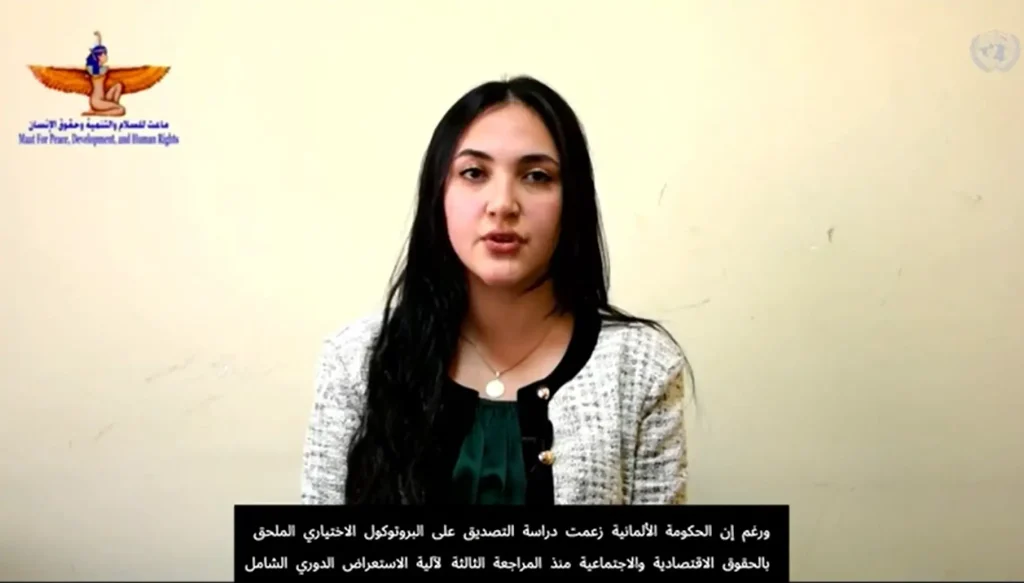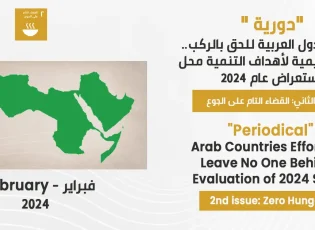Samira Abe: The Covid-19 pandemic has taken a devastating toll on the rights of the Somali women
Paula Sudibo: Supporting victimized Somali women must be part of the reconstruction efforts
Ghada Al Kadiki: Resolution No. 1325 on women, peace and security in Libya must be activated
Marwa Salem: The increasing targeting of women human rights defenders in Libya is something that should not be tolerated
Coinciding with Women's History Month, and on the sidelines of the 46th session of the Human Rights Council, Maat for Peace, Development, and Human Rights organized an online event entitled "Women's Rights in light of Armed Conflicts: Two Case Studies of Somalia and Lybia". A number of women human rights defenders from both countries participated in the event to discuss the most prominent problems women face in light of the current situation, especially after the Covid-19 pandemic.
In this regard, Samira Abe, the representative of the International Alliance for Peace and Development (IAPD), stated that sexual violence is one of the most common and widespread violations of human rights in Somalia, which claimed the lives of many victims last year. Abe pointed out that the Covid-19 pandemic has had an intense impact on Somali women; as cases of marital violence, child marriage, and female genital mutilation (FGM) have increased despite the pandemic. The Somali researcher added that civil society organizations in Somalia should actively contribute to the elimination of violence by providing legal aid and psychological support to victims.
Paula Sudibo, the representative of Elizka Relief Foundation, stated that activating the role of Somali women in spreading peace must be taken into consideration, noting that appropriate measures and legislation that meet international standards must be applied to prevent sexual and gender-based violence, especially during armed conflicts. Sudibo added that adequate services to support victims of gender-based violence must be part of the implementation of all peace and humanitarian operations, and the reconstruction efforts, in order to achieve the 2019 Somali Women's Charter.
Meanwhile, Libyan activist Ghada al-Kadiki, the representative of the Libyan Debate Club, affirmed that the political empowerment of women in decision-making processes is not only limited to their participation in elections as candidates or voters. Women must contribute to all kinds of development, in line with international mechanisms that cover and guarantee all women's rights. Al-Kadiki pointed out that Resolution No. 1325 on Women, Peace, and Security must be activated in Libya, especially during the next period, in parallel with the focus of Stephanie Williams, the acting special representative of the Secretary-General and Head of the United Nations support mission in Libya, on it in the Libyan Political Dialogue Forum (LPDF), considering women are the least corrupt, the most efficient, and almost the only group standing-up for and defending woman's rights as a citizen.
On a related note, Marwa Salem, a human rights activist and a representative of the International Institute of Humanitarian Law (IIHL), revealed her hostile attitude towards the formal empowerment of Libyan women, stressing the need for an executive and legislative will that seeks to truly empower women. Salem further stressed that the economic empowerment of Libyan women is a key motive for the promotion of women's rights. The expert in women's affairs declared that the increasing targeting of women human rights activists in Libya is carried out with the full view and consent of the executive bodies, which is something that should not be tolerated, and she stressed the need to conduct urgent investigations to avoid the perpetuation of impunity.
It is worth noting that this event comes within a number of activities organized by Maat on the situation of women in Arab and African countries afflicted by armed conflicts, especially under the Covid-19 pandemic.















